Top 10 Indonesian Culture, Customs and Etiquette
Should you remove your shoes when visiting friends? Should you greet those on elevators with a smile? When thinking about the dos and don'ts in your own ... read more...nation, these questions might not seem like the most obvious ones, but things that you might not even consider at home can have a major impact abroad. Here is a list of Indonesian Culture, Customs and Etiquette.
-
The country of Indonesia is extremely diversified. Over 300 ethnic groups live on its more than 17,500 islands, 6,000 of which are inhabited. Each province has its unique history, religion, ethnic makeup, and language. Local identity is typically prioritized over national identity. In addition, there are a lot of cultural influences that come from diverse ancestries. Chinese, European, Indian, and Malay influences are mixed among Indonesians.
Despite having the world's largest Muslim population, Indonesia also has a sizable Protestant, Catholic, Hindu, and Buddhist population. To sustain coherence, the government has had to pay a lot of attention to this enormous diversity. As a result, "Unity in Diversity" serves as the country's motto, and the language has been standardized.
Because Indonesian society is so different, there is a strong tendency to gravitate toward the group, whether it be a family, community, or island. People define themselves in terms of their family, place of birth, and ethnicity. The family's structure is still fairly conventional. Family members are well aware of their connection and have clearly defined duties.
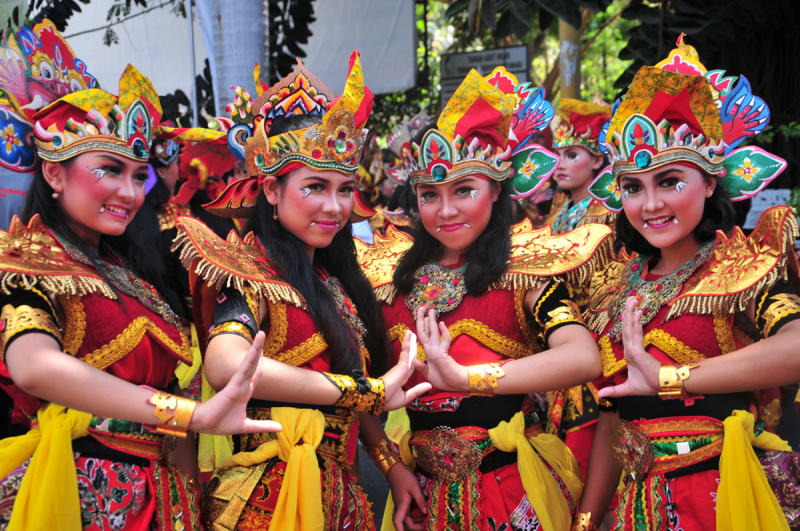
https://www.rbth.com/ 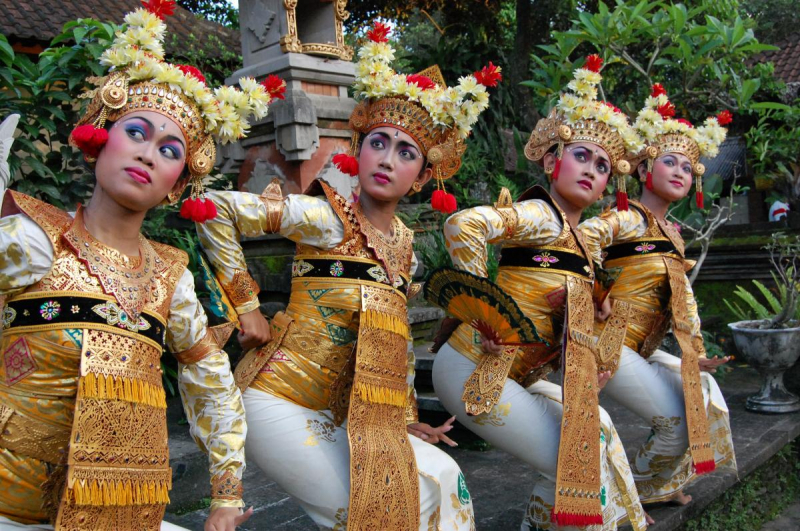
https://www.kompasiana.com -
Given that they are intended to express respect, greetings can be fairly formal. The most typical form of welcome that includes the word "Selamat" is a handshake. After shaking your hand, a lot of Indonesians might do a small bow or put their hands over their hearts. Always introduce the oldest or most senior person first when meeting multiple people.
In Indonesia, titles are significant because they denote status. Make careful to use any titles you are aware of along with the name. Although having a first name plus a surname is more and more typical, particularly among middle class Indonesians, some people still just have one name.
It's possible that many Indonesians, particularly those from Java, had incredibly long names that were abbreviated into a kind of nickname for casual conversation. In Indonesia, there are numerous ethnic groupings. Over the years, the majority have changed their names to Indonesian ones, however some still use their ethnicity's naming customs.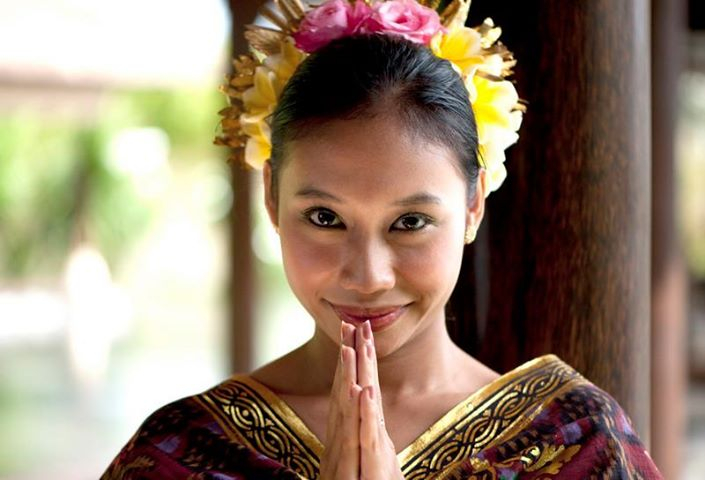
https://truly-holiday.blogspot.com/ 
https://www.dreamstime.com/ -
Gift giving etiquette in Indonesia heavily depends on the ethnicity of the receiver. Gift giving etiquette for the Chinese: It is customary to politely decline a gift before receiving it. This demonstrates the recipient's lack of avarice. Scissors, knives, and other cutting implements should be avoided because they suggest that you wish to end the connection. Extensive wrapping is expected; the fortunate colors gold and crimson are used. When received, gifts are not always opened.
Gift giving etiquette for ethnic Malays / Muslims: Alcohol is prohibited in Islam. If you know the receiver will enjoy it, only provide booze. Anything used in meals should be "halal"; items that are not halal include things like alcohol and products made with pork byproducts, like gelatin. Halal meat denotes that the animal was killed in accordance with Islamic law. Use just your right hand to present gifts. When received, gifts are not always opened.
Gift giving etiquette for ethnic Indians: Use just your right hand to present gifts. Wrap presents in paper that is red, yellow, or green or another vibrant hue since these colors are auspicious. Give no leather goods to a Hindu. Give alcohol only if you are convinced the receiver will consume it. When received, gifts are not always opened.
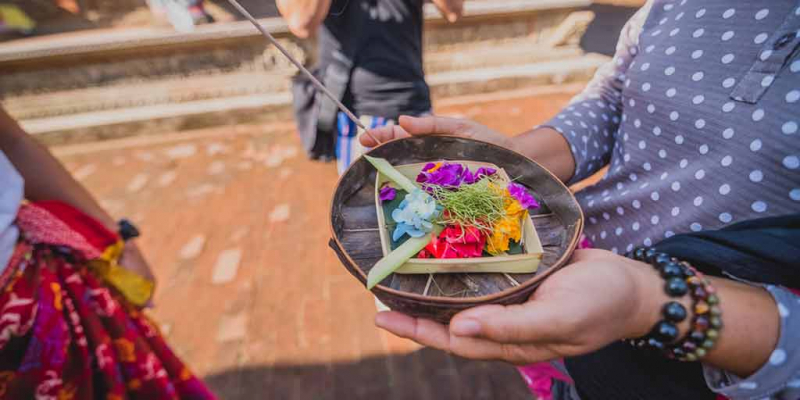
http://www.worldnomads.com/ 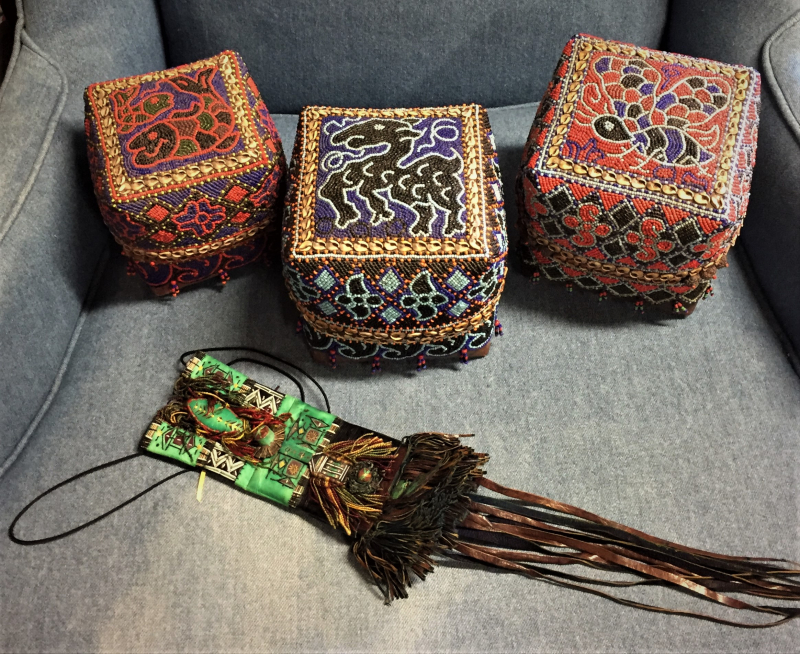
http://www.parkwaydriveantiques.com/ -
The manners of dining vary depending on the situation and environment. The behavior is more formal, the more official the occasion. A specific spot will be assigned to you as a visitor, so wait to be shown to it. Food is frequently eaten from a central communal dish.
After you've been served the food, helping yourself is not considered impolite. When food is offered buffet-style, guests are typically requested to take their own first. Although it is considered polite for the guest to urge that others go before them, this never occurs. Men are always served before women in formal settings.
Before you begin, wait to be invited to dine. Frequently, the only utensils at the place setting are a fork and a spoon. Some folks might utilize their hands depending on the circumstance. Use only your right hand to eat and pass food.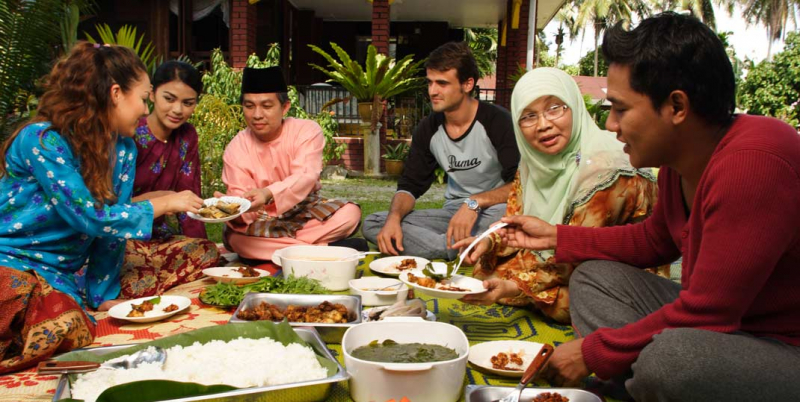
http://beachmeter.com/ 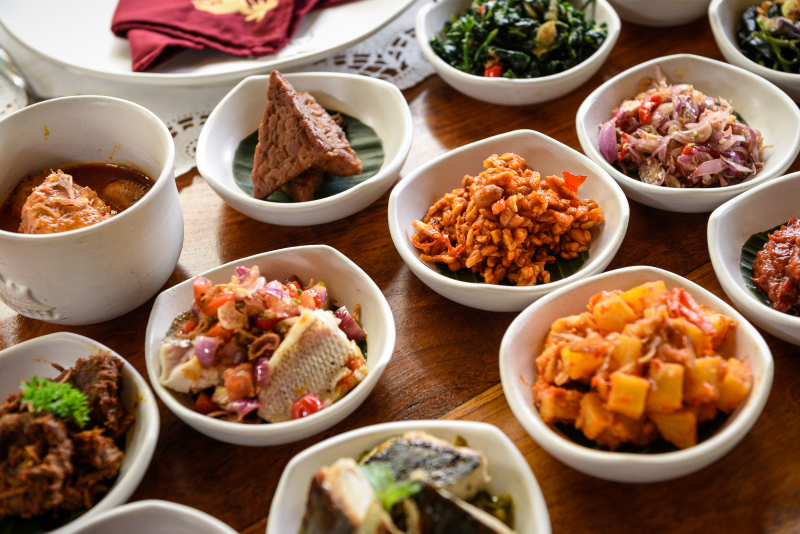
http://www.ubudfoodfestival.com -
The most crucial aspect of Indonesian etiquette is respecting elders. With so many different ethnic groups and traditions present, hierarchy plays a part in society. No one is equal, everyone has a status, and status can change. In most cases, respect is earned because of a person's status, power, position, and age. It is crucial to respect elders and know how to act in their presence.
Salim and sungkem are the two most well-known expressions of respect for elders in Indonesia. Salim is the practice of touching one's forehead with the back of the hand. Salim typically uses this technique with parents, teachers, grandparents, senior neighbors, and pretty much anyone else with an age difference of up to 5 to 6 years. This act of kindness is still being done today.
Sungkem, on the other hand, is the act of apologizing and demonstrating respect by holding the elder's hands and bowing deeply such that the child's nose is in their parents' hands. Additionally, it is still used today, typically during weddings and Hari Raya Eid al-Fitr.
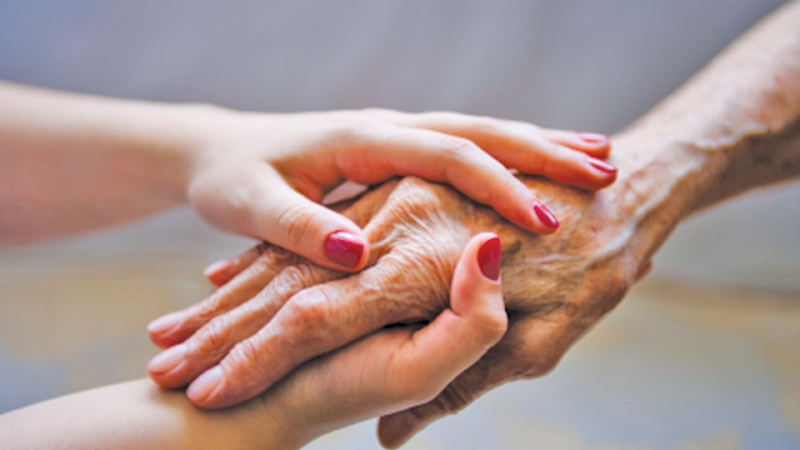
https://monomousumi.com/ 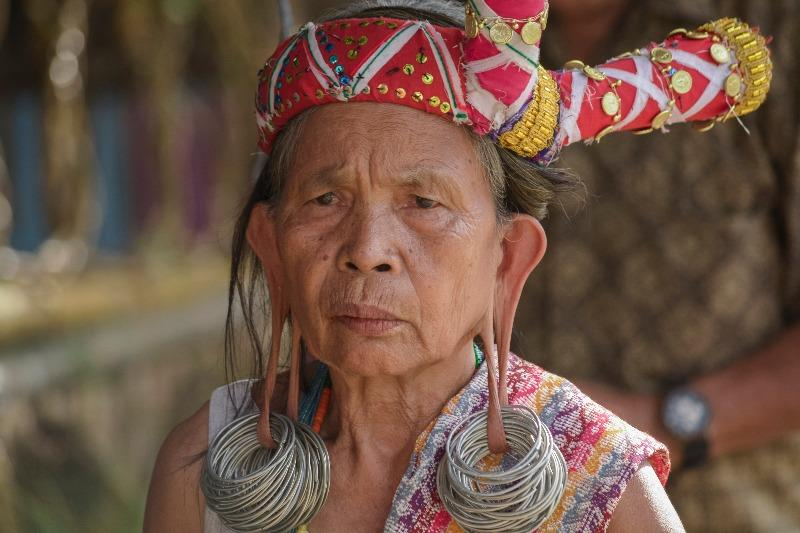
https://kontinentalist.com/ -
When you're upset in public, groaning or moaning is considered rude and bad manners. Indonesians always strive to avoid expressing their annoyance in front of a large crowd. When two people disagree, they typically try to work things out in private.
It is crucial for Indonesians to keep someone's face from being ruined. Indonesians would always try not to insult you when you ask them for their honest opinion. They will speak politely and with consideration. If you upset an Indonesian, you'll know it when they start to avoid you. The idea of "face" is crucial to grasp since group cohesiveness must be maintained. Avoiding the source of humiliation is the idea in Indonesia ("malu"). As a result, people are exceedingly cautious about how they behave and communicate. Although it is unrealistic to expect a foreigner to grasp the subtleties of the idea, it is nonetheless important to monitor one's behavior.
Never make fun of, yell at, or otherwise offend somebody. Always keep flaws secret and deal with them privately. Similar to this, no one or group should ever be publicly blamed. One example of the face/shame principle in action is the indirect method in which Indonesians communicate; they never want to make someone feel bad by responding negatively, so they word their questions in a way that makes it clear what they really mean to convey. When the intended meaning is "No," Bahasa Indonesian has 12 ways to say it as well as several different methods to convey "Yes"
https://www.dreamstime.com/ 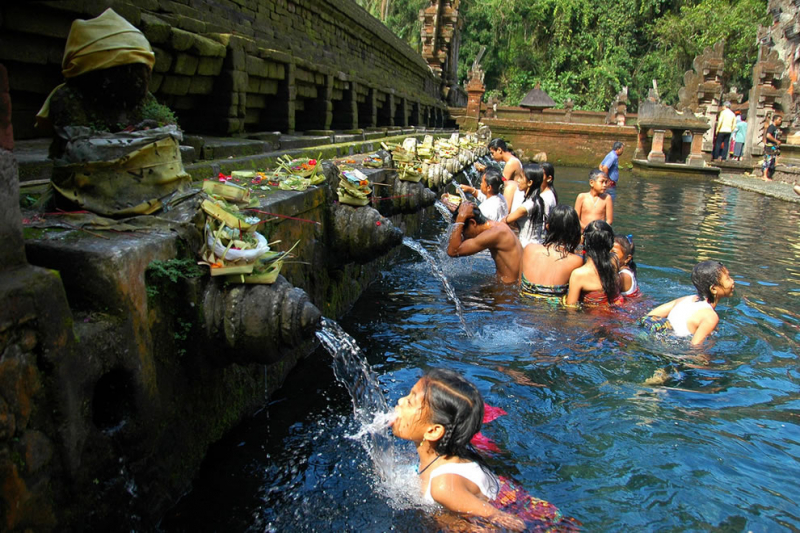
https://www.lovethesepics.com/ -
The kindness of the Indonesian people toward strangers is their greatest claim to fame. Most foreigners' first impressions of Indonesians are that they are warm and welcoming and frequently smile. It is accurate because smiling is considered courteous in Indonesia. It is an act of friendship, kindness, and humility. a gesture intended to make conversation partners or bystanders feel at ease.
When someone smiles at you in Indonesian, it's always a good idea to return the smile, even if the person is a stranger or you just happened to meet their eyes. As an illustration, when an Indonesian person passes someone they know but is in a hurry or isn't in the mood to converse, they will merely smile in recognition.
The Indonesian population firmly supports both the long-standing pattern of mutual aid (gotong-royong) and the tradition of decision-making by consensus (musyawarah-mufakat). In the culture, politeness, modesty, and loyalty are highly valued. Despite the disparities in ethnicity and religion, it is critical for Indonesians to retain excellent neighbor relations.
Indonesians are therefore expected to regularly participate in regional meetings and events. Everyone in their neighborhood will avoid meeting or conversing with one particular family if they exhibit any form of conceit or don't make an effort to blend in.
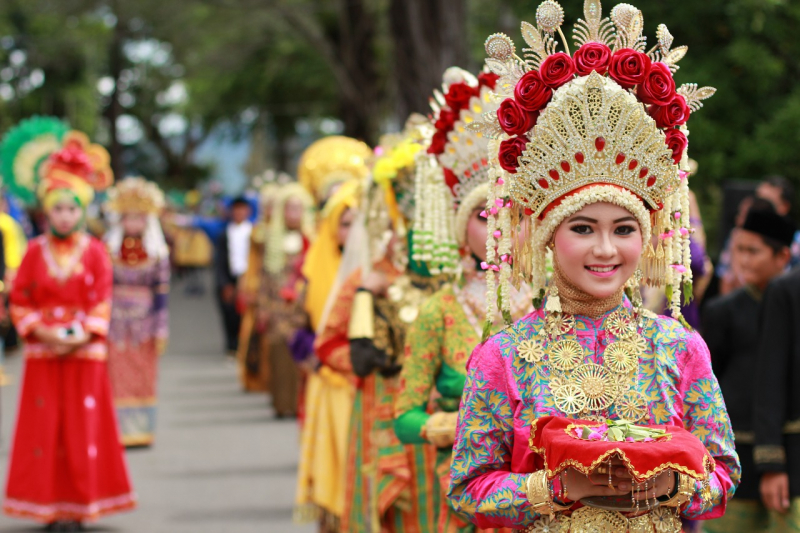
http://report.licorice.pink/blog/indonesia/ 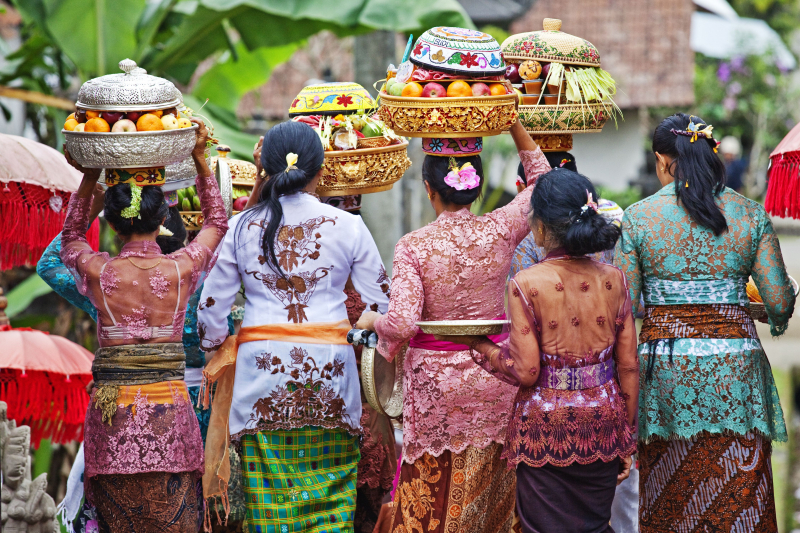
https://www.tripsavvy.com -
Using a spoon, fork, and hand while eating is fairly typical. Unless there is meat on the menu, a knife is rarely found on the table. In a formal setting, the elder will often start the meal first, followed by everyone else.
In Indonesia, there is a practice known as kobokan because the majority of people eat with their hands. A tiny bowl of water called a kobokan is used to wash one's hands before and after eating. Kobokan is typically seen in Sundanese or Padang restaurants. Not only kobokan, but some restaurants also force patrons to eat at the same table even though they are strangers.
The majority of Indonesia's population is Muslim, hence all food must be halal, which is a legal requirement that forbids the eating of alcohol and pork. Restaurants that don't serve halal meals typically display a sign or inform customers that pork is on the menu. During Ramadan, it's crucial to remember that one shouldn't invite a Muslim to join them for a daytime meal. On this day of the month, it is best to avoid eating in their presence as well.
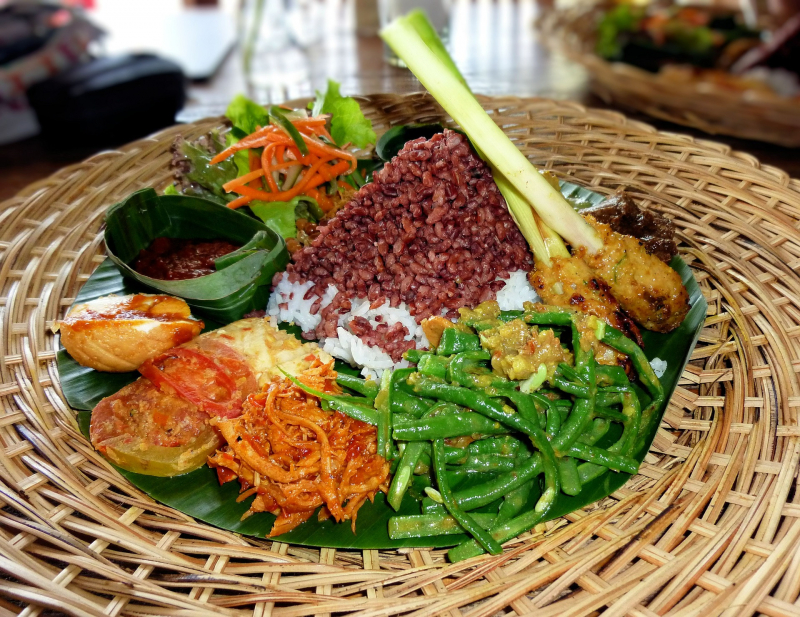
https://www.seriouslytravel.com 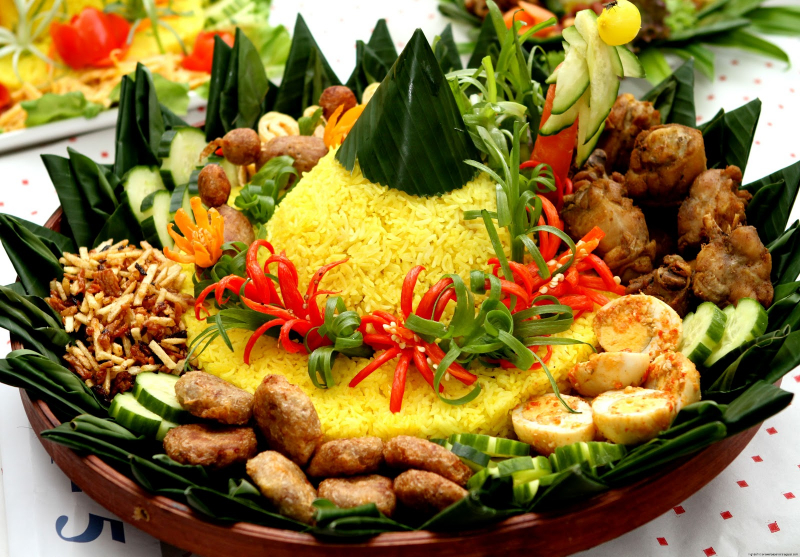
http://highdefinitionswallpaperss.blogspot.com -
The majority of the region had varied restrictions on how to dress in Indonesia. For instance, Aceh has adopted Sharia law, thus there are stricter and more formal clothing codes than in Bali. Overall, wearing a bikini or a short, sleeveless top in public still seems odd, even though it is not an issue at all in some places.
- Business: The way individuals dress for work in Europe and Indonesia is essentially identical. It is acceptable as long as it is polite, avoids exposing too much skin, and appears businesslike. It is very advised to dress modestly and conservatively. For women, the shoulder should be covered and the skirt should fall below the knee.
- Formal Events: Like in every other nation, the internal standard dress-code is the most frequently used attire for formal occasions like weddings, dinner parties, ceremonies, etc. For practically every formal occasion, Indonesians typically wear batik in addition to tuxedos for men and long dresses for women. These days, batik is available in more than one form and can even be made into clothing.
- Visited Sacred Sites: The majority of Indonesia's holy places are extremely devout and have their own regulations. It is imperative to dress modestly when entering places of worship, such as mosques, churches, candi and pura (temples), and synagogues. In reality, modest attire is required in some secular locations, such as the Keraton or museums.
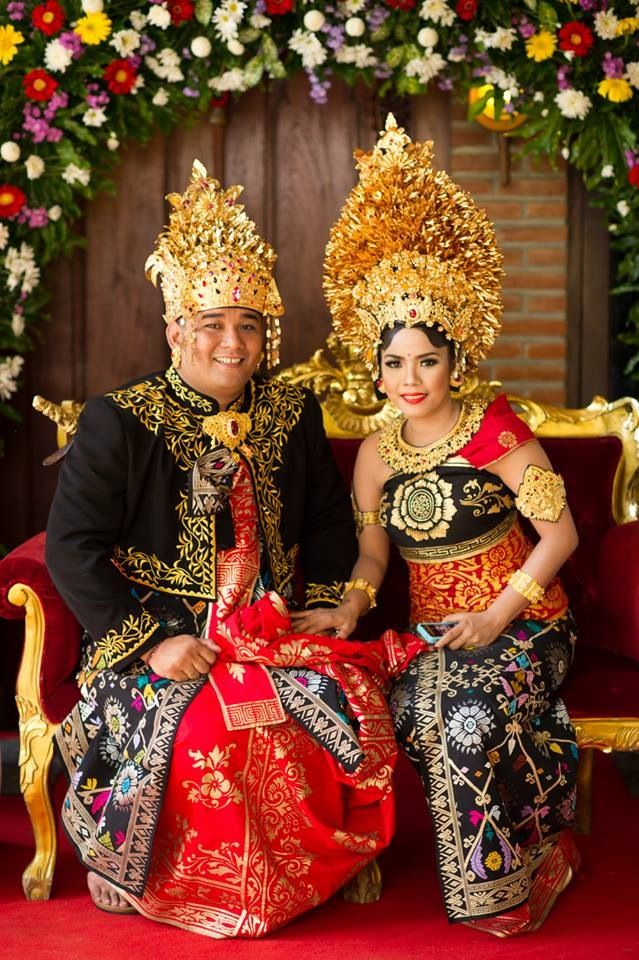
https://www.pinterest.com/ 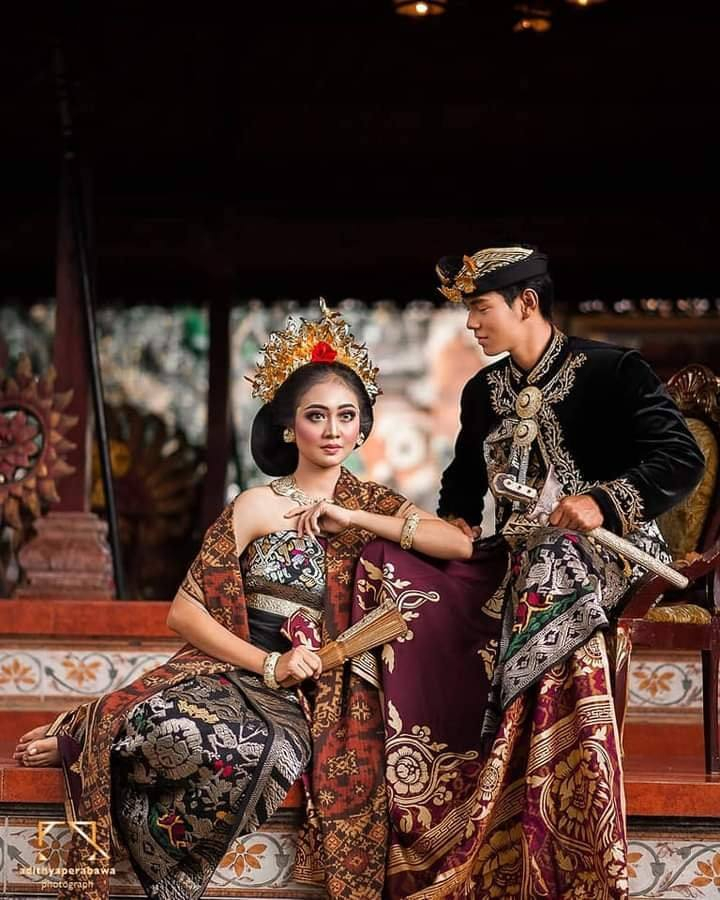
https://picpost.postjung.com -
In comparison to Western nations, Indonesia is likewise more collectivistic. People frequently believe they are autonomous actors rather than part of "groups." These organizations frequently demand a great level of loyalty since they reflect or ultimately define who their members are. For instance, even when they contradict, the group's interests typically take precedence over the individual's. In addition, group members anticipate being treated better than non-members of the group. A person receives a sense of togetherness, safety, and belonging in exchange for their loyalty. This is significant because preserving harmony among all the various populations is seen to depend on oneness.
Social behavior is influenced by this collectivism. People rarely accomplish things or travel alone in Indonesia due to the enormous population density of the nation. Sometimes people who work alone are pitied or even questioned about their lonesome habits. The value of privacy is not the same as it is in Western countries. People engross themselves in the life of others. Glamour is sparked by curiosity, and a person's business quickly becomes the business of the neighborhood. The hierarchy in Indonesian culture is primarily based on age.
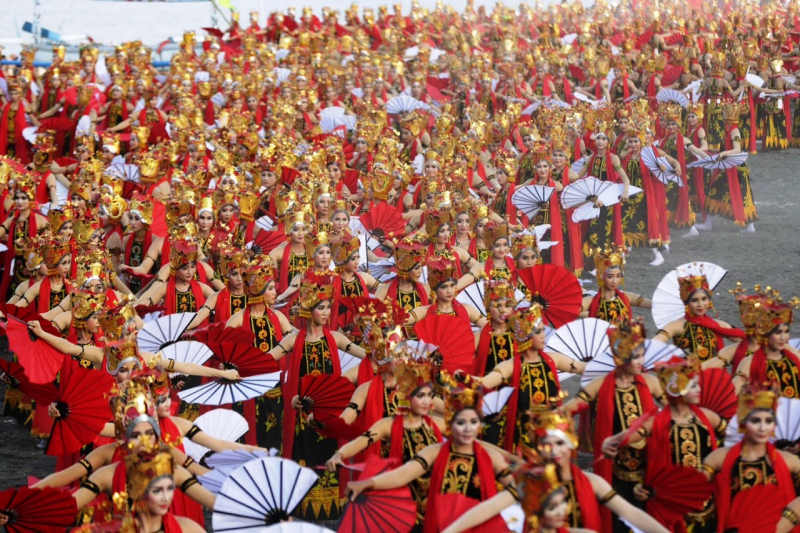
https://www.tourismindonesia.com/ 
https://factsofindonesia.com































